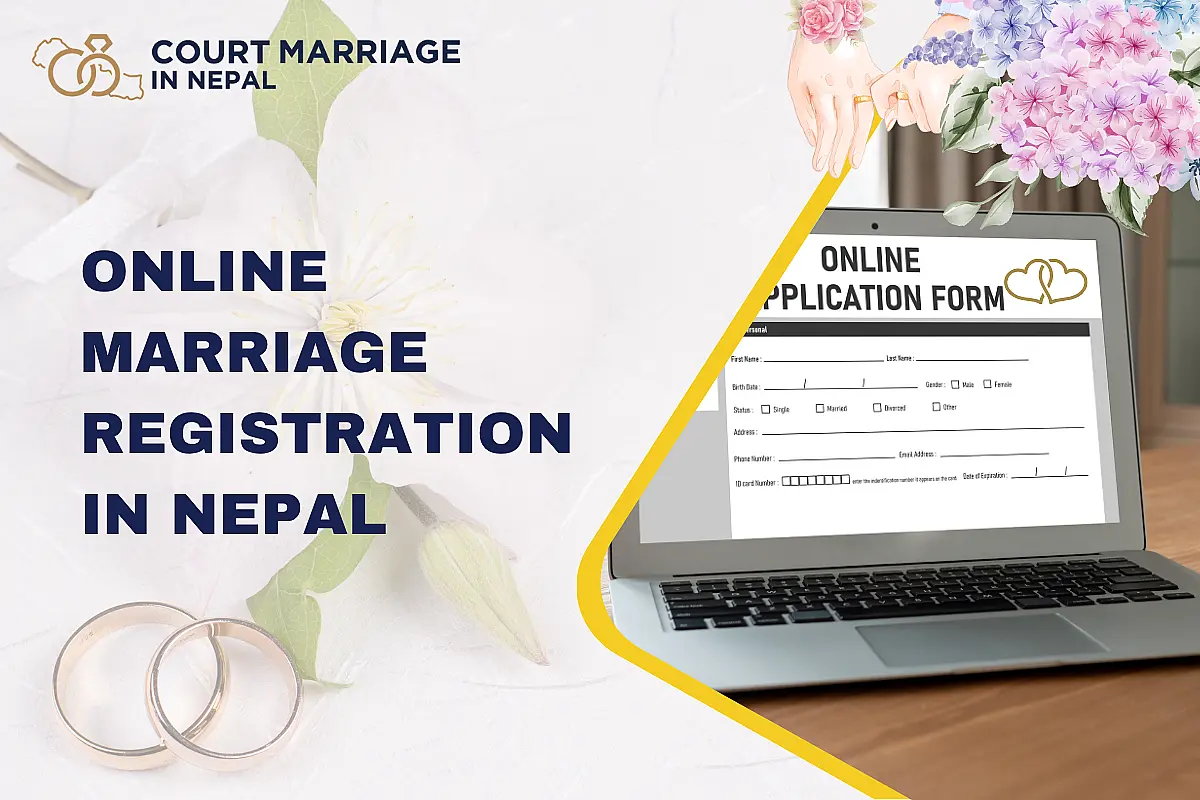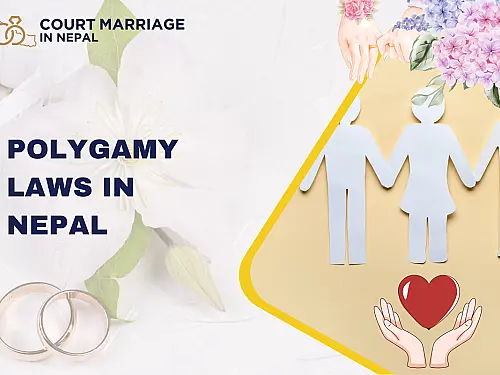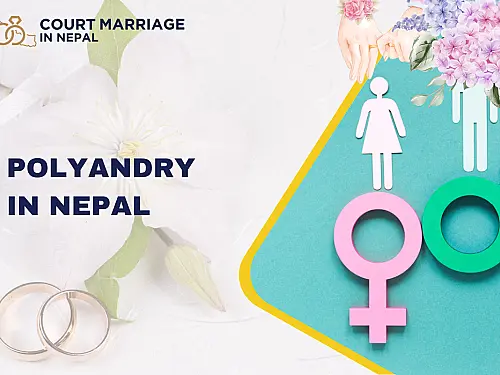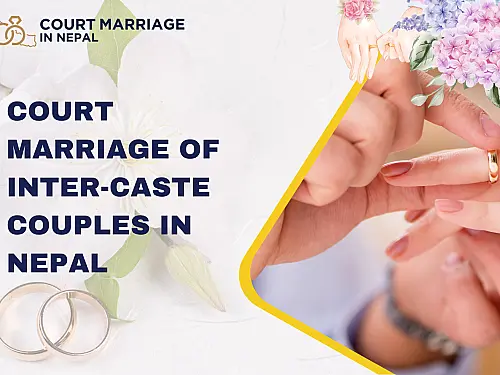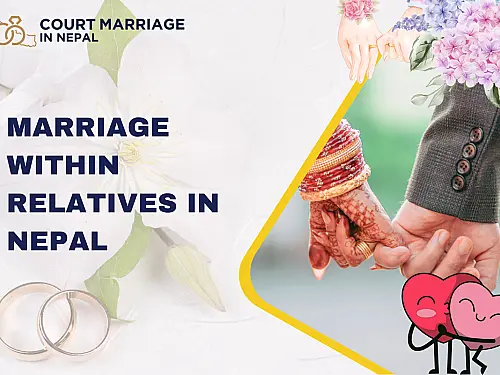Table of Contents
Recently, Nepal has adopted a digital transformation in several areas of public administration, with a strong emphasis on enhancing transparency, efficiency, and accessibility. The domain of marriage registration, historically a paper heavy and frequently lengthy procedure, has started to experience significant modernization. While a comprehensive online marriage registration system has not yet been established across the country, notable progress has been made by various local authorities, legal entities, and civil registries to simplify the process for the public. As a lawyer, focused on family and civil law, we frequently assist clients with these changing processes. This article seeks to offer a thorough summary of the digital application process and court marriage methods in Nepal.
Marriage registration in Nepal is primarily regulated by the National Civil (Code) Act, 2017, which requires the legal registration of marriages to guarantee official acknowledgment and safeguard spousal rights. Historically, those wanting to register their marriage had to go to the Ward Office of their home residence, present the necessary documents, and complete a physical verification procedure. This frequently resulted in logistical issues, especially for individuals residing outside their hometowns or in foreign countries.
To address these challenges and align with the government's wider digitization objectives, several municipalities have implemented partial online systems that enable applicants to start the registration process digitally.
For example, via local government websites or unified systems like Nepal’s National ID and Civil Registration Department portal, users can complete application forms online, upload necessary documents, and arrange appointments for face-to-face verification. Nevertheless, obtaining the final approval and receiving the marriage registration certificate still necessitates being physically present at the local office.
Digital Start of Marriage Registration
Although Nepal has not implemented a complete digital marriage registration system, some local authorities have launched limited online services to alleviate administrative challenges.
For example,
Lalitpur Metropolitan City, Ward No. 28, where couples can start the marriage registration procedure by completing an online form and receiving a token number. This token system functions as an appointment tool, facilitating improved visitor management and decreasing wait times at ward offices.
To utilize this service, individuals can go to the website which is, https://ward28.lmc.gov.np/service/marriage-registration and complete the necessary details. Yet, it's essential to realize that this online form does not represent the complete legal registration. It merely starts the process, and physical presence remains essential for both parties and witnesses to confirm identity, present original documents, and sign in front of the registration officer.
This initiative demonstrates Nepal's continuous commitment to e-governance. While it might not completely achieve the vision of fully online marriage registration, it undoubtedly represents a step forward in that direction.
Court Marriage Procedure in Nepal
For numerous couples, especially those inter-caste, interfaith, or marrying beyond traditional norms, the court marriage choice offers a neutral and legally safe alternative to religious or traditional celebrations. The legal basis for court marriage in Nepal is established in the National Civil Code 2074 (2017), permitting two consenting individuals to formalize their marriage via a structured procedure at the District Court.
Requirements for Eligibility
In order to proceed with a court marriage in Nepal, the subsequent eligibility criteria must be satisfied:
- Age Requirement: Both individuals must be at least 20 years old.
- Marital Status: At the time of application, both people must be single, widowed, or officially divorced.
- Consent: Consent should be provided voluntarily and without pressure.
Necessary Papers
Every party is required to prepare and submit the subsequent documents:
- Certificates of Citizenship for both parties.
- Single Status Letters (Unmarried Certificates) acquired from the ward office of the permanent residence for each party.
- Recent Passport-Size Photos (minimum of three copies).
- Citizenship Certificates of Two Witnesses, who need to be present at the time of registration.
If one party is a foreign national, extra paperwork like a No Objection Letter from their embassy, a valid visa, and translated or legalized versions of important documents might be necessary.
Process in Steps
Application Submission
The partners need to submit their finalized application along with supporting documents to the District Court in the location where either individual live.Verification Procedure
The court examines the records and might set a date for in-person attendance.Physical Presence
On the specified date, both parties along with the two witnesses are required to be present before a judge or appointed court officer. This appearance serves to verify identities, guarantee free will, and fulfill the legal requirements.Marriage Certificate Issuance
Once the court is satisfied, it registers the marriage and provides a Marriage Registration Certificate, a legal document accepted throughout Nepal and internationally.
Schedule and Expenses
Generally, the procedure for court marriage among Nepali citizens can be finalized in 2 to 3 working days, assuming all documents are properly prepared. Nevertheless, delays might happen if paperwork is insufficient or if further confirmation is needed.
The court fee is fairly low (usually below NPR 1,000), but enlisting a lawyer for help with paperwork, appointment setting, and court appearances can cost depending on the case's complexity.
Advancing Towards Digitalization
Nepal is just beginning to digitize its judicial and administrative services, such as marriage registration. The Supreme Court alongside the Ministry of Law, Justice and Parliamentary Affairs is developing platforms for online appointment scheduling, digital submission of documents, and electronic tracking of cases.
Various private legal service providers have already implemented online tools to help clients start their court marriage applications digitally. Clients can submit scanned documents, schedule consultations, and fill out forms through websites prior to in-person court appearance.
Although complete online marriage registration, allowing legal marriage without in-person attendance is currently not recognized in Nepal, we anticipate the emergence of more hybrid models, particularly in urban regions.
Legal Support and Consultation Services
Registering a marriage, whether at the court or ward office, necessitates thorough documentation, adherence to age and consent regulations, and collaboration with public agencies. Consequently, it is strongly advised to seek legal advice particularly in situations that involve:
- Inter-caste or cross-border marriages.
- Individuals who were previously married.
- Non-Nepali citizens wed to Nepali nationals.
- Conflicts regarding individual status or qualification.
Conclusion
Nepal is progressing well in enhancing the efficiency and accessibility of marriage registration. Although full online marriage registration is not currently offered, digital resources such as online appointment scheduling and document assistance have started to enhance the experience.
Court marriage continues to serve as a practical and inclusive legal option for all Nepali citizens and qualified foreigners. With appropriate legal assistance and prompt preparation, the whole process can be carried out efficiently and quickly.
If you or someone you know is thinking about court marriage or requires assistance with marriage registration, don’t hesitate to seek advice from a licensed legal professional. A bit of legal advice can significantly contribute to ensuring your new start is safe and hassle-free.
Frequently Asked Questions
At Court Marriage In Nepal, a registered law firm operating as Court Marriage In Nepal Pvt. Ltd., we specialize exclusively in Court Marriage Nepal. As the first law firm in Nepal dedicated to court marriage services, we assist both Nepali citizens and foreign nationals with the court marriage registration process in Nepal, including complete legal support for court marriage registration for foreign citizens in Nepal. As a trusted marriage firm in Nepal and a licensed law firm in Nepal, we ensure a smooth, lawful, and stress-free experience. Contact us today for confidential assistance with court marriage registration in Nepal.

